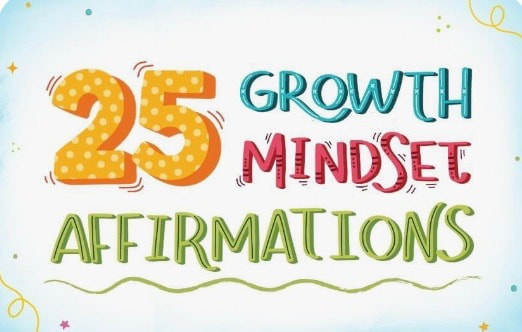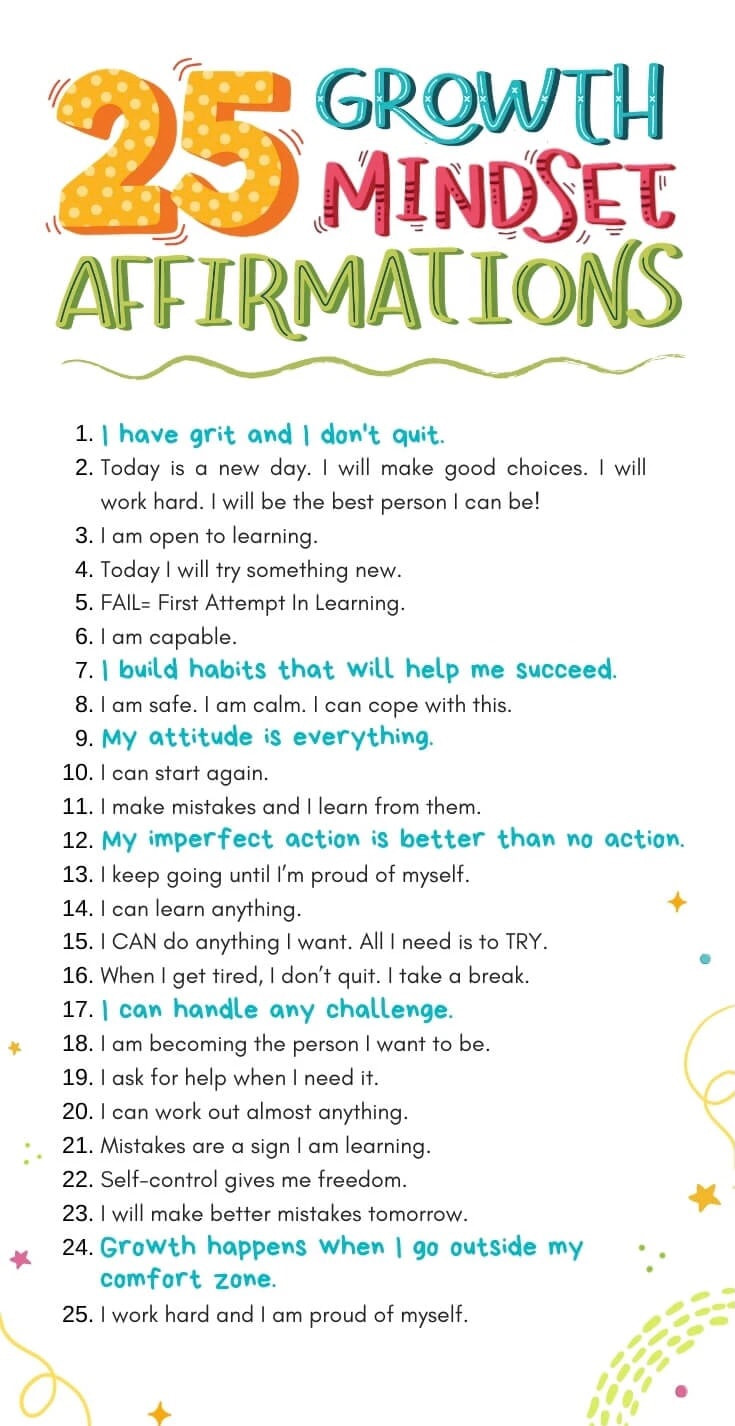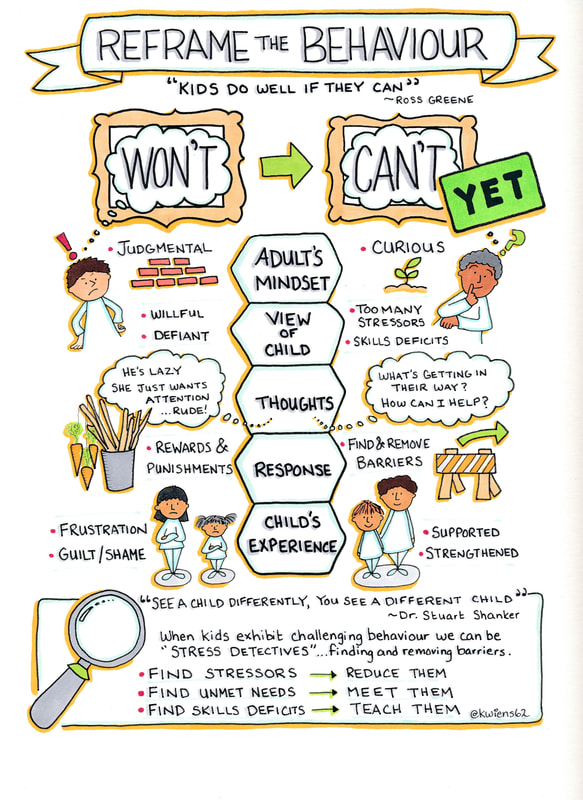|
Growth mindset is powerful. But how can you help children develop it?
The reality is most parents and teachers are not sure where to start. Here's a good way to introduce these affirmations to your children or students: 1. Use the printable "We are a Growth Mindset Family" from BELOW. 2. Take a moment to sit with your child and discuss what it FEELS like to be a growth mindset family. The printable has two suggestions and you can add your own. Possible answers might include "persistent", "hardworking", etc. 3. Have the same discussion about what SOUNDS and LOOKS like to be a growth mindset family. You can refer to the list of 25 growth mindset statements for ideas. 4. Post completed worksheets around your home or classroom for a daily reminder.
0 Comments
"A CHILD CONTROLS IF THEY DO WELL OR NOT” Too frequently we think kids will do well if they want to – meaning its up to the kids. It's not uncommon to hear parents and teachers claiming a challenging child is just looking for attention, or they are wanting to get their own way, or they are being lazy, or they are manipulating, or they are not motivated. Ross Greene questions these assumptions and wonders why kids wouldn’t want to do well. And even if we settle with ‘kids do well if they want to’, he feels this is a narrow view because this reduces the role that adults can play in the life of a child that isn’t doing well. We at Edublocks believe something is getting in the child’s way if they aren't doing well. And, we can’t help kids if we don’t know what is getting in their way. When we change perspective and begin to understand that kids do well if they can, we can shift to a more productive and supportive role to help identify what is getting in the way of the child doing well. We need to shift our way of thinking and change our philosophy from ‘kids do well if they want to’, to ‘kids do well if they can’. Whether a kid is sulking, pouting, whining, refusing to talk, crying, spitting, screaming, swearing, kicking, hitting, destroying property, or worse, we won’t know what to do about the challenging behaviour until we identify the lagging skills or unsolved problems that gave rise to it. Lagging skills are the why of challenging behaviour. Unsolved problems are the who, what, when, and where. “Behind every challenging behaviour is either an unsolved problem or a lagging skill” or both. Challenging behaviour is a form of communication letting us know there is an unsolved problem or lagging skill. When we can begin to identify what challenges the child has, we can create (restore) a helping relationship and apply different approaches to support the child and reduce the challenging behaviour. Through compassion, reframing our thinking and understanding challenges, we will recognize when kids do not have the skills to do better, and we can equip children with what they need. Children do well if they can, and if they can’t, we as parents and teachers need to figure out what is getting in their way. At Edublocks Learning Centre, our program's exciting, proven component is the focus on customization for every unique student. Everyone learns differently and at a particular pace, so we take this into full consideration. Our helpful assessments pinpoint which areas will keep students engaged for optimal learning. Along with this specialized process, it helps tremendously that our team of tutors truly CARES about our learners. They are highly skilled and full of heart! Each educator feels a special affinity for children, making it their mission to help them understand the topics without stress or pressure -- just full comprehension & teamwork. Give your child the opportunity to reach their full potential. Care to learn more? Send us a message to get started |
Archives |
Photo used under Creative Commons from shixart1985




